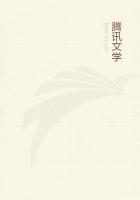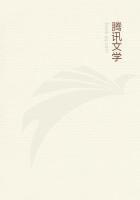The three mystical virtues which Christianity has not adopted, but invented, are faith, hope, and charity. Now much easy and foolish Christian rhetoric could easily be poured out upon those three words, but I desire to confine myself to the two facts which are evident about them. The first evident fact (in marked contrast to the delusion of the dancing pagan)--the first evident fact, I say, is that the pagan virtues, such as justice and temperance, are the sad virtues, and that the mystical virtues of faith, hope, and charity are the gay and exuberant virtues.
And the second evident fact, which is even more evident, is the fact that the pagan virtues are the reasonable virtues, and that the Christian virtues of faith, hope, and charity are in their essence as unreasonable as they can be.
As the word "unreasonable" is open to misunderstanding, the matter may be more accurately put by saying that each one of these Christian or mystical virtues involves a paradox in its own nature, and that this is not true of any of the typically pagan or rationalist virtues.
Justice consists in finding out a certain thing due to a certain man and giving it to him. Temperance consists in finding out the proper limit of a particular indulgence and adhering to that. But charity means pardoning what is unpardonable, or it is no virtue at all.
Hope means hoping when things are hopeless, or it is no virtue at all.
And faith means believing the incredible, or it is no virtue at all.
It is somewhat amusing, indeed, to notice the difference between the fate of these three paradoxes in the fashion of the modern mind.
Charity is a fashionable virtue in our time; it is lit up by the gigantic firelight of Dickens. Hope is a fashionable virtue to-day;our attention has been arrested for it by the sudden and silver trumpet of Stevenson. But faith is unfashionable, and it is customary on every side to cast against it the fact that it is a paradox.
Everybody mockingly repeats the famous childish definition that faith is "the power of believing that which we know to be untrue."Yet it is not one atom more paradoxical than hope or charity.
Charity is the power of defending that which we know to be indefensible.
Hope is the power of being cheerful in circumstances which we know to be desperate. It is true that there is a state of hope which belongs to bright prospects and the morning; but that is not the virtue of hope.
The virtue of hope exists only in earthquake and, eclipse.
It is true that there is a thing crudely called charity, which means charity to the deserving poor; but charity to the deserving is not charity at all, but justice. It is the undeserving who require it, and the ideal either does not exist at all, or exists wholly for them.
For practical purposes it is at the hopeless moment that we require the hopeful man, and the virtue either does not exist at all, or begins to exist at that moment. Exactly at the instant when hope ceases to be reasonable it begins to be useful.
Now the old pagan world went perfectly straightforward until it discovered that going straightforward is an enormous mistake.
It was nobly and beautifully reasonable, and discovered in its death-pang this lasting and valuable truth, a heritage for the ages, that reasonableness will not do. The pagan age was truly an Eden or golden age, in this essential sense, that it is not to be recovered.
And it is not to be recovered in this sense again that, while we are certainly jollier than the pagans, and much more right than the pagans, there is not one of us who can, by the utmost stretch of energy, be so sensible as the pagans.
That naked innocence of the intellect cannot be recovered by any man after Christianity; and for this excellent reason, that every man after Christianity knows it to be misleading.
Let me take an example, the first that occurs to the mind, of this impossible plainness in the pagan point of view. The greatest tribute to Christianity in the modern world is Tennyson's "Ulysses."The poet reads into the story of Ulysses the conception of an incurable desire to wander. But the real Ulysses does not desire to wander at all.
He desires to get home. He displays his heroic and unconquerable qualities in resisting the misfortunes which baulk him; but that is all.
There is no love of adventure for its own sake; that is a Christian product. There is no love of Penelope for her own sake;that is a Christian product. Everything in that old world would appear to have been clean and obvious. A good man was a good man;a bad man was a bad man. For this reason they had no charity;for charity is a reverent agnosticism towards the complexity of the soul.
For this reason they had no such thing as the art of fiction, the novel;for the novel is a creation of the mystical idea of charity.
For them a pleasant landscape was pleasant, and an unpleasant landscape unpleasant. Hence they had no idea of romance; for romance consists in thinking a thing more delightful because it is dangerous;it is a Christian idea. In a word, we cannot reconstruct or even imagine the beautiful and astonishing pagan world.
It was a world in which common sense was really common.
My general meaning touching the three virtues of which Ihave spoken will now, I hope, be sufficiently clear.
They are all three paradoxical, they are all three practical, and they are all three paradoxical because they are practical.
it is the stress of ultimate need, and a terrible knowledge of things as they are, which led men to set up these riddles, and to die for them.
Whatever may be the meaning of the contradiction, it is the fact that the only kind of hope that is of any use in a battle is a hope that denies arithmetic. Whatever may be the meaning of the contradiction, it is the fact that the only kind of charity which any weak spirit wants, or which any generous spirit feels, is the charity which forgives the sins that are like scarlet.













